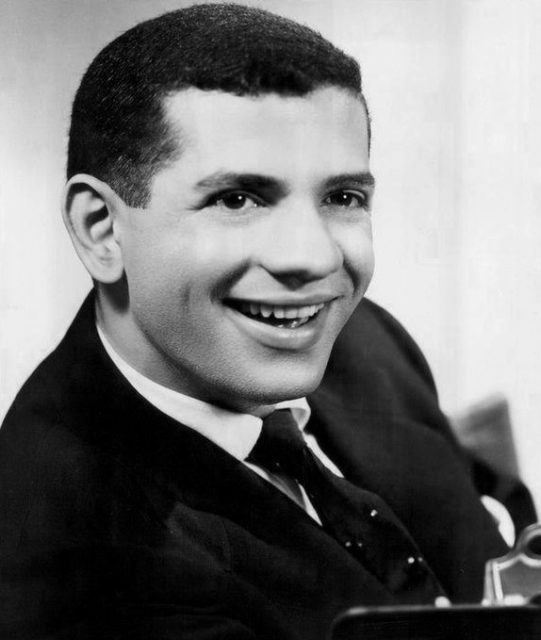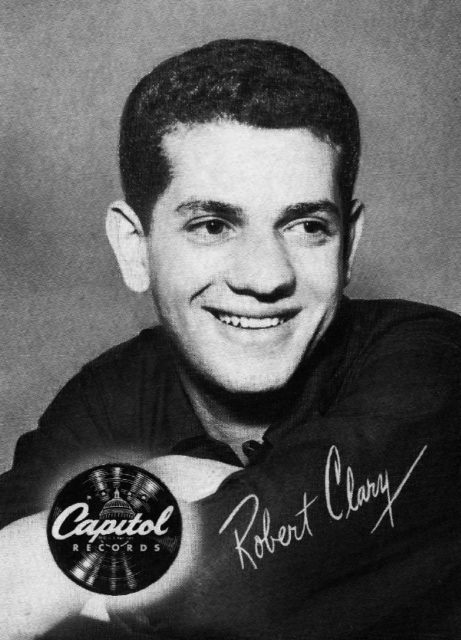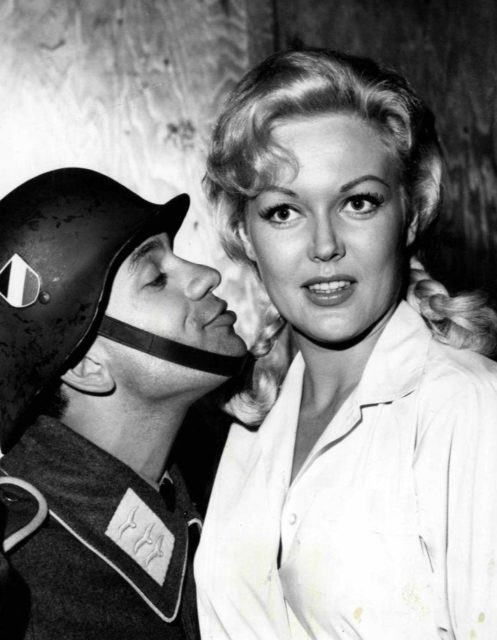Resilience is defined as the ability to move forward in life or to “bounce back” in the face of difficult or traumatic experiences or unfavorable circumstances. Both history and modern times provide numerous examples of extraordinary people who were or are incredibly resilient. French-born entertainer Robert Clary is certainly one of them. Despite a horrifying experience in the Holocaust of World War II, Clary’s resilience helped him achieve success as an actor, author, devoted husband, artist, and lecturer.
Born March 1, 1926, as Robert Max Widerman in Paris France, Robert Clary was the youngest of 14 children. As a child, he sang professionally on French radio and was an art student at the Paris Drawing School. Clary was Jewish, and in 1942 during the Nazi occupation of France, he was deported to the concentration camp at Ottmuth.

A tattoo on his left arm left him marked as prisoner A5714. Clary was later transferred to the Buchenwald concentration camp in Germany. Upon his liberation from Buchenwald on April 11, 1945, Clary learned that 12 other members of his immediate family, including his parents, had been sent to the Auschwitz death camp in Poland and did not survive the Holocaust. Three of his siblings had not been deported and instead survived the Nazi occupation of France.
Clary reflects on how he survived the Holocaust, revealing that he sang to SS soldiers at Buchenwald every week with an accordionist. He believes that singing and entertaining along with his youth and good health allowed him to make it through the ordeal. Clary also notes that due to his age he did not fully understand the severity of the concentration camps.
His experiences during the Holocaust and the loss of his loved ones affected him deeply. What especially troubles him is that he feels that he and others in his situation were not viewed as human beings by the Nazis, and that they were usually treated as even less than animals. Upon arriving at the Buchenwald camp, Clary and his fellow prisoners had to spend the first night in a shower room. They were terrified that they would actually be gassed to death since Nazi SS officers often used fake showerheads in concentration camp gassing chambers. Clary did not receive food for his first eight days at the camp, and he and other prisoners slept on top of one another only to wake up next to the corpses of those who did not make it through the night.
He likens his time in Nazi concentration camps as a pure nightmare due to how he was treated and what he had to resort to in order to survive. Dreams about his experience still haunt him. However, he refuses to hold a grudge against those who wronged him, seeing it as a waste of time and energy. He acknowledges the darkness in humanity but chooses instead to focus on those he loves.
Despite his tragic experiences during the war, Clary initially returned to France as an entertainer. He recorded songs that became popular in both France and the United States; the songs were brought to the U.S. via wire and put on records by Capitol Records. Clary left France for the U.S. in 1949.
Once in America, Clary, who is a small man at 5’1”, appeared on The Ed Wynn Show in a French-language comedy skit. He eventually met the man who would become his mentor, Eddie Cantor.
Cantor secured Clary a spot on the Colgate Comedy Hour, and by the mid-1950s, Clary’s television appearances expanded to include The Martha Raye Show for NBC and Appointment with Adventure for CBS. Clary’s comedic skills were soon noticed by Broadway, and he appeared in popular musicals like New Faces of 1952. He also made a film appearance in 1952’s Thief of Damascus with Paul Henreid and Lon Chaney, Jr. Clary returned to television for The Gisele MacKenzie Show in 1958.

In 1965, Clary married the daughter of his mentor Eddie Cantor. He and Natalie Cantor Metzger had been close friends for many years. In the same year, Clary was offered and accepted his best-known acting role – that of Corporal Louis LeBeau on a new and soon-to-be popular television sitcom called Hogan’s Heroes. The sitcom takes place in a German prisoner of war (POW) camp during World War II, and Clary plays a French POW who is also a member of an Allied sabotage group that operates from within the camp.
Clary explained that he had no problems acting in the comedy series since there were very few similarities between his own experience in concentration camps and the experiences of the show’s characters in a POW camp. According to Clary, Stalag 13 was a very different type of camp since no one was gassed or hanged. He emphasized that people in POW camps certainly suffered, but the trauma of the Holocaust was another experience entirely. Clary starred on Hogan’s Heroes from 1965 until it went off the air in 1971, and he remained close with his several of his co-stars, including Werner Klemperer, John Banner and Leon Askin, whose lives were also impacted by the Holocaust.
After Hogan’s Heroes, Clary continued his acting career in films and made-for-TV movies with World War II themes, such as Remembrance of Love, a film about the Holocaust. In 1975, he appeared in the movie The Hindenburg about a fictional plot to blow up the famous airship. Clary played Joseph Späh, a real-life passenger on the airship’s last voyage. Clary was also successful on TV soap operas, starring on Days of Our Lives and The Young and the Restless from 1973 to 1979.
Aside from his diverse and successful career as an entertainer, Clary has also helped people understand the horrors of the Holocaust from firsthand experience for over 20 years. He has lectured at schools, colleges, and other locations on a mission, he says, to “…teach man’s inhumanity to man.” He published his memoir From the Holocaust to Hogan’s Heroes: The Autobiography of Robert Clary in 2001 and has traveled to promote and discuss the book.
Clary, now 90 years old, thoroughly loved being an entertainer – he compares it to breathing, natural and essential. He is still an active man, living in the same Beverly Hills house he has owned for more than 40 years where he paints, maintains his Parisian-style backyard garden, and runs his own website. His wife Natalie died in 1997. Clary is one of the last two surviving principal cast members of Hogan’s Heroes alongside Kenneth Washington.
Resiliency, though a valuable trait for human survival, can never erase the memories of a traumatic experience. As Clary expressed in a Los Angeles Times interview, “I’m as tough as nails…But once in a while, I think how my parents died. They went to Auschwitz and directly to the gas chambers. Sometimes I see their last minute and it absolutely kills me.”

However, the resiliency showed by Robert Clary and many others today and historically allows people to endure and persevere despite what they have been through.
Clary clearly made the best of his circumstances by not only surviving but thriving – entertaining millions during his long career and educating countless people about his life experiences.
